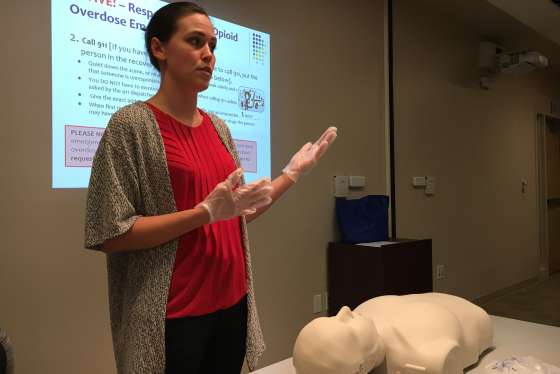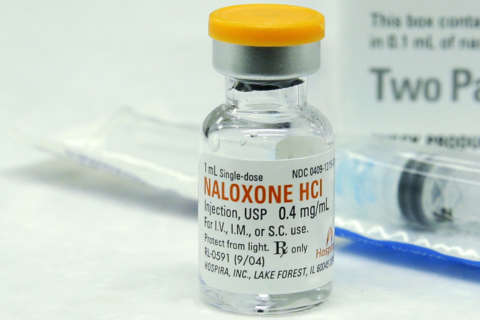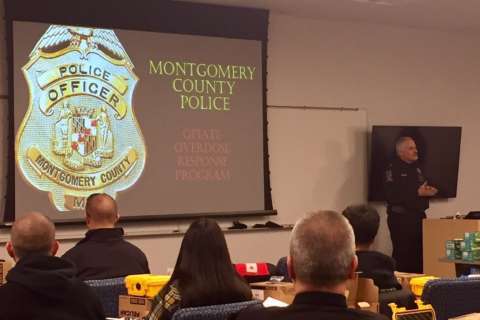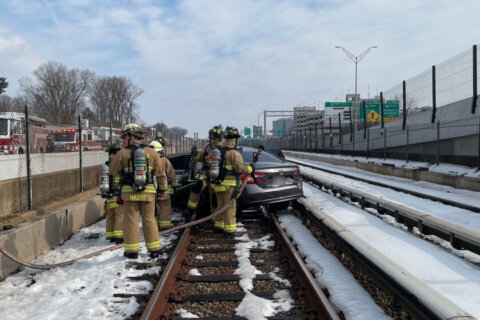WASHINGTON — The opioid crisis continues its death march across the country and in the D.C. area. In one week in December, five people died in Fairfax County from opioids.
But the county is fighting back in an unusual manner.
In response to the national opioid epidemic, inmates at the Fairfax County jail who want to learn are being taught how and when to administer the fast-acting opioid overdose reversal drug naloxone.
Marissa Farina-Morse with the Fairfax-Falls Church Community Services Board (CSB) said that for the past two months they’ve been offering the training to inmates at the county’s Adult Detention Center.
“We serve many individuals here at the Adult Detention Center who may have an opiate issue themselves or who might have friends and loved ones (who have opiate issues).”
The CSB provides services to individuals with mental health, substance abuse and intellectual disability needs in Fairfax County.
In addition to providing the tools for someone to be equipped to respond to an overdose in the community, Farina-Morse said the jail program also provides an opportunity to give some education and support in a very relaxed manner.
“That might start somebody on the path to thinking about treatment for their substance abuse needs,” she said.
The program allows the inmate to start a relationship with the treatment provider. Farina-Morse said that relationship may give them the tools to know where to get help in the future.
Fairfax County Sheriff’s Office has made it possible for the inmates to be given a single dose of naloxone in a nasal spray form as they leave the jail.
Farina-Morse said the idea is to save more lives by getting naloxone into as many hands as possible, “not only that somebody might use it to reverse their own overdose.”
The jail program is part of the county’s effort to train more people to recognize opiate overdoses and to expand access to naloxone.
“This medication is key in opioid overdose to reverse the overdose and restore breathing. It provides a window of opportunity for someone to get medical attention and to live.”
She said when inmates are released from the county jail, they want them to have the tools they need for success.
“Especially when it comes to a lifesaving tool like Narcan (naloxone) so we want someone to be able to voluntarily agree to participate in the Revive class at the Adult Detention Center then based on the successful completion of that class have access to the medication at the time of release.”
Farina-Morse said there is the hope that the training and education could provide a path to treatment for a person battling addiction.








